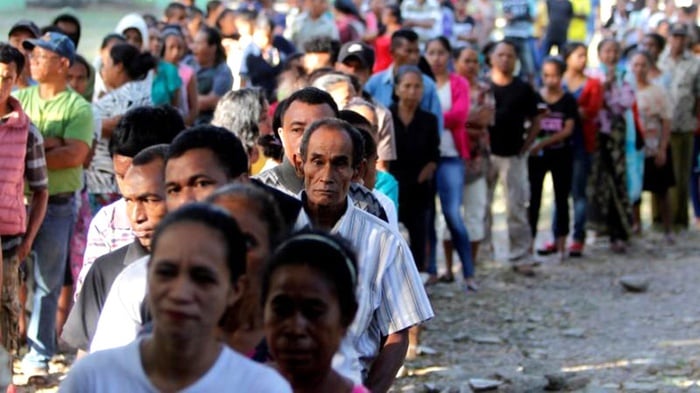WASHINGTON, November 19, 2008 – The World Bank has reiterated its commitment to providing the support needed by African countries to minimize the negative impact of the global financial crisis on growth and poverty reduction.
In a statement to World Bank teams working on the ground in African countries, Africa Region Vice President Obiageli Ezekwesili called for a scale-up in activities aimed at identifying needs of the Bank’s client countries, reviewing Bank programming and projects in the region and determining additional Bank response.
“We must determine what we have to do differently on a needs basis to support any request by our country clients,” Ezekwesili said. Bank teams are expected to report country needs associated with the financial crisis over the next few weeks
World Bank Group response to the crisis
Already, the World Bank is taking key measures to protect developing nations from the global crisis, which has affected countries from Germany and Iceland to South Africa and Australia. Through the International Development Association (IDA), with donor contributions of $42 billion over the next three years, the Bank is working with the world’s poorest countries to accelerate support as needed.
Lending from the World Bank Group’s International Bank for Reconstruction and Development (IBRD) is also expected to triple to more than $35 billion compared to $13.5 billion last year to meet additional demand from developing country partners.And, through its International Finance Corporation (IFC), the Bank is ramping up support to the private sector through the launch or expansion of key initiatives totaling around $30 billion over the next three years. Among the initiatives, a new Infrastructure Crisis Facility, which would provide financing for privately-funded infrastructure projects facing financial distress
African finance ministers call for supportEzekwesili’s call to urgent action follows an appeal issued by more than 50 African ministers of finance and planning, as well as central bank governors, who met in Tunis, Tunisia, November 13-14 ahead of the G-20 Summit on Financial Markets and the World Economy in Washington on November 15.Co-organized by the African Development Bank (AfDB), the African Union (AU) Commission and the Economic Commission for Africa (ECA), the meeting was convened to discuss the global financial crisis and to consider options for mitigating its likely impact on African economies.
“We call upon (international financial institutions) to be ready to provide appropriate support, in an expeditious and flexible manner, to African countries in case of contagion,” the final communiqué of the conference read in part.
The crisis is “undermining the significant progress” made by Africa over the last ten years and, “further exacerbates the impact of the recent sharp increase in food prices and volatility in the oil markets,” the communiqué added.
Ezekwesili praised the “candor” of the conference which concluded that the global slowdown has dampened growth prospects for Africa by diminishing “trade opportunities, access to finance, migrant remittances and foreign direct investment”.
Impact on Africa
The financial crisis is threatening to turn back the clock on progress achieved during decades of reforms that have geared economic policy toward ensuring Africa is a more attractive destination for private capital. The crisis has triggered quick depreciation of currencies and major declines in stock market prices with foreign investors in securities and equities selling off large shares of their holdings.
The impact of the global financial crisis and ensuing recession on Africa will be three-fold, according to World Bank Chief Economist for Africa Shanta Devarajan.
“First, a slowdown in private capital flows will adversely affect economies that had been relying on these flows to finance much-needed investment, particularly infrastructure investment. Already Ghana and Kenya have postponed sovereign bond issues worth about $800 million,” he said. “Second, commodity prices are falling, which hurts exporters but helps importers.”
“Third,” he said, “remittances, which run at about $15 billion a year to Africa, and foreign aid, are likely to be affected.”
According to Devarajan, the World Bank Group’s response is to deploy its full panoply of instruments – knowledge assistance, front-loading IDA, IBRD lending, IFC investments and guarantees – to maintain Africa’s growth and poverty reduction momentum.
World Bank assisting its African partners
African ministers and bankers attending the Tunis conference praised the Bank for its role in keeping Africa’s interest on the global agenda; and for the measures it has taken on “possibilities of frontloading for IDA countries and also the IBRD tripling.”
Agreeing with Ezekwesili’s call on African countries to stay the course of market reforms that have stood them in good stead in the recent past, the Tunis conference underscored the need for comprehensive reforms at the Bretton Wood Institutions (the World Bank Group and the International Monetary Fund) to ensure that they “can more adequately reflect changing economic realities in the global economy and be more responsive to future challenges.”









Sem comentários:
Enviar um comentário